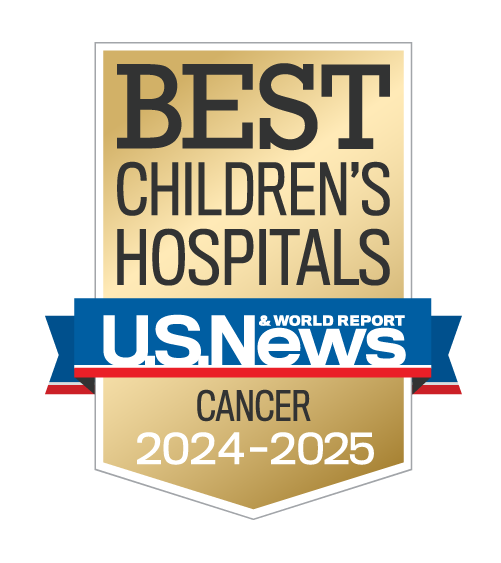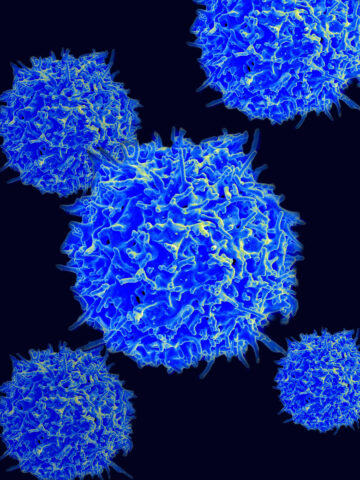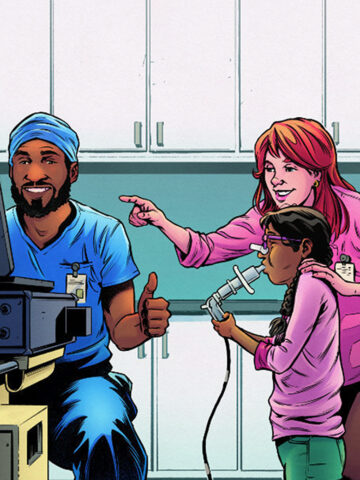Cancer takes more than a physical toll on patients. Mental health struggles are common during and after treatment, and they can profoundly affect pediatric patients. That’s one of the many reasons why the Hyundai Cancer Institute at Children’s Hospital of Orange County (CHOC) has launched the new Pathways After Cancer Treatment (PACT) Clinic, a mental health bridge program that is part of CHOC’s After Cancer Treatment Survivorship (ACTS) Program.
“The PACT Clinic is a brainchild of our commitment to cancer survivors, in collaboration with the community and Hyundai,” says Dr. Lilibeth Torno, clinical director of the ACTS Program; medical director of the Hyundai Cancer Institute at CHOC; and chief of pediatric oncology at University of California, Irvine School of Medicine. “This bridge program will help adolescent and young adult cancer survivors find the mental health care they need.”
Mental health and pediatric cancer patients
Pediatric cancer survivors are at an increased risk of mental health disorders for many reasons over and above routine life challenges.
“The challenges of physical or learning limitations brought about by cancer and its treatment affect a survivor’s ability to succeed at school, find jobs and develop meaningful relationships,” Dr. Torno says. “Cancer follow-up care can span a pediatric patient’s entire life; therefore, addressing mental health challenges is an important aspect of aftercare.”
Recent research has found pediatric cancer survivors are 57% more likely to develop depression and 29% more likely to have anxiety than their peers. Other common psychiatric issues include post-traumatic stress disorder (PTSD), obsessive-compulsive disorder and phobias. Patients also had a 56% elevated risk of developing psychotic disorders, such as schizophrenia.

Even patients who don’t develop clinical mental health disorders still struggle. Poor self-esteem, academic difficulties and social problems are all common. Unsurprisingly, patients over 25 who report having less income, education or social support are more likely to report psychological difficulties.
“We are all familiar with the devastation of unaddressed mental health problems in the general population,” Dr. Torno says. “Unfortunately, there is a shortage of mental health providers across the nation, so finding mental health services can be daunting for anyone.”
The birth of PACT
The ACTS Program at CHOC provides ongoing survivorship resources for the physical and psychosocial aftereffects of cancer diagnosis and treatment. But, as with so many other disparities it brought to light, the COVID-19 pandemic accentuated a gap in the care available to these young patients.
“The overall health system has a lack of resources for chronic mental health issues,” Dr. Torno says. “Because pediatric cancer patients have so many additional life stressors and need mental health care, yet may have issues finding it, we came up with the idea for the PACT Clinic.”
After receiving an Impact Award from Hyundai Hope on Wheels to launch the pilot program, CHOC opened the PACT Clinic in February 2024.
“Unaffordable copays, long waitlists for providers and lack of transportation can all prevent patients from accessing mental health care,” Dr. Torno says. “The clinic is a short-term bridge to provide mental health services for our teen and young adult patients until we can link them with providers in the community who can provide longer-term care.”
What PACT offers
As a pilot program, the PACT Clinic currently is limited to CHOC cancer survivors in the ACTS Program. The clinic offers patients three to six sessions with a psychologist at no cost.
“These short-term sessions help cancer survivors find stability and bearing until they can see a mental health provider in network with their insurance carrier,” Dr. Torno says. “This also helps to alleviate the burden of copays during this time period.”
Patients may also have access to alternative therapies, such as acupuncture or group therapy sessions. Although funding for the program currently extends just one year, Dr. Torno hopes to grow the clinic and its services.
“Given the diverse population we serve in Southern California, it is crucial to provide resources for those who may have challenges to access or financial constraints,” Dr. Torno says. “While we are still early in the program’s existence, so far, all our feedback has been positive. It is our hope that this endeavor will lead to a sustainable long-term program in the future.”
Scaling PACT in 2025 and beyond
Dr. Torno hopes the PACT Clinic will ultimately help more patients at CHOC while growing into a scalable, replicable model other hospitals and health systems can implement.
“As we all know, national funding is limited and highly competitive,” Dr. Torno says. “However, with community engagement and commitment from stakeholders, I believe this model can be scalable, as long as community is an integral part of the program.”
Bridge programs such as the PACT Clinic, with more community and philanthropic engagement, can help more young cancer survivors successfully navigate the difficulty of finding mental health care. This support is crucial for them to better cope with and manage life ahead.
“The challenges facing cancer survivors are significant, but we are all part of the solution to cure cancer and its late effects, including mental health problems,” Dr. Torno says. “It is our hope that we have made a small pathway towards success and that we have given our cancer survivors a better and more meaningful journey through this program.”
Learn more about PACT and the ACTS Program at CHOC.

CHOC Hospital was named one of the nation’s best children’s hospitals by U.S. News & World Report in its 2024-25 Best Children’s Hospitals rankings and ranked in the cancer specialty.




